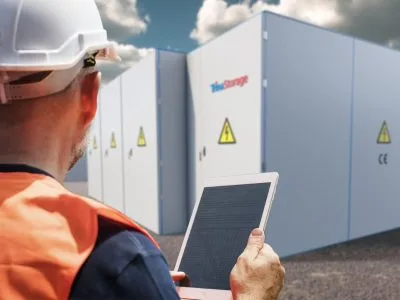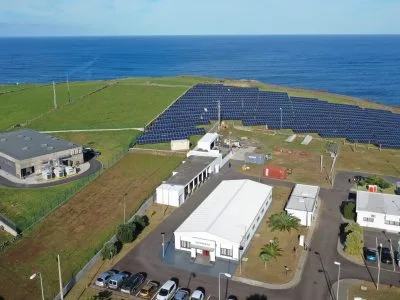Duke Energy Proposes Micro-Grid Project For Smokey Mountains National Park
DukeEnergy has proposed to build a micro-grid with a small solar installation and battery to serve a remote communications tower in the Great Smoky Mountains National Park.
The project would cost less than $1 million to build, says Duke. If federal and state agencies grant approval, construction will start early in 2017 and be completed by the middle of the year.
“This project would allow us to take advantage of renewable energy resources to serve a customer’s distinct need in a less expensive and more reliable way,” says Robert Sipes, Duke’s Western North Carolina regional general manager.
The communications tower is atop Haywood County’s Mount Sterling. Duke proposes to put in a 10-kilowatt solar generator and a 95-kilowatt-hour zinc-air battery to power the tower.
Federal reviews
At present, the tower gets electricity from a single overhead electric line that runs for miles with no other customer on it other than the communications tower. If the N.C. Utilities Commission approves the project as requested, Duke can eliminate the line. That would allow 13 acres of parkland currently maintained as utility corridor to return to its natural state.
Duke has run a number of micro-grid pilots and research projects, including the pilot micro-grid at the McAlpine Substation in south Charlotte. But this would be the power company’s first operational micro-grid outside the research realm.
The National Park Service cannot make a final decision to issue agreements authorizing the project until it completes compliance reviews for the National Environmental Policy Act and National Historic Preservation Act, says Cassius Cash, who is superintendent of Great Smoky Mountains National Park.
Sustainability initiative
But he notes that his national park participates in a nationwide network of parks looking to implement climate-friendly behavior in their sustainability planning. And he says the park is “pleased to be considered for this project, which could support the sustainability initiative.”
If you want to know more about this and other topics directly from end users of energy storage technologies join us at one of these annual events: The Energy Storage World Forum (Grid Scale Applications), or The Residential Energy Storage Forum, or one of our Training Courses.




